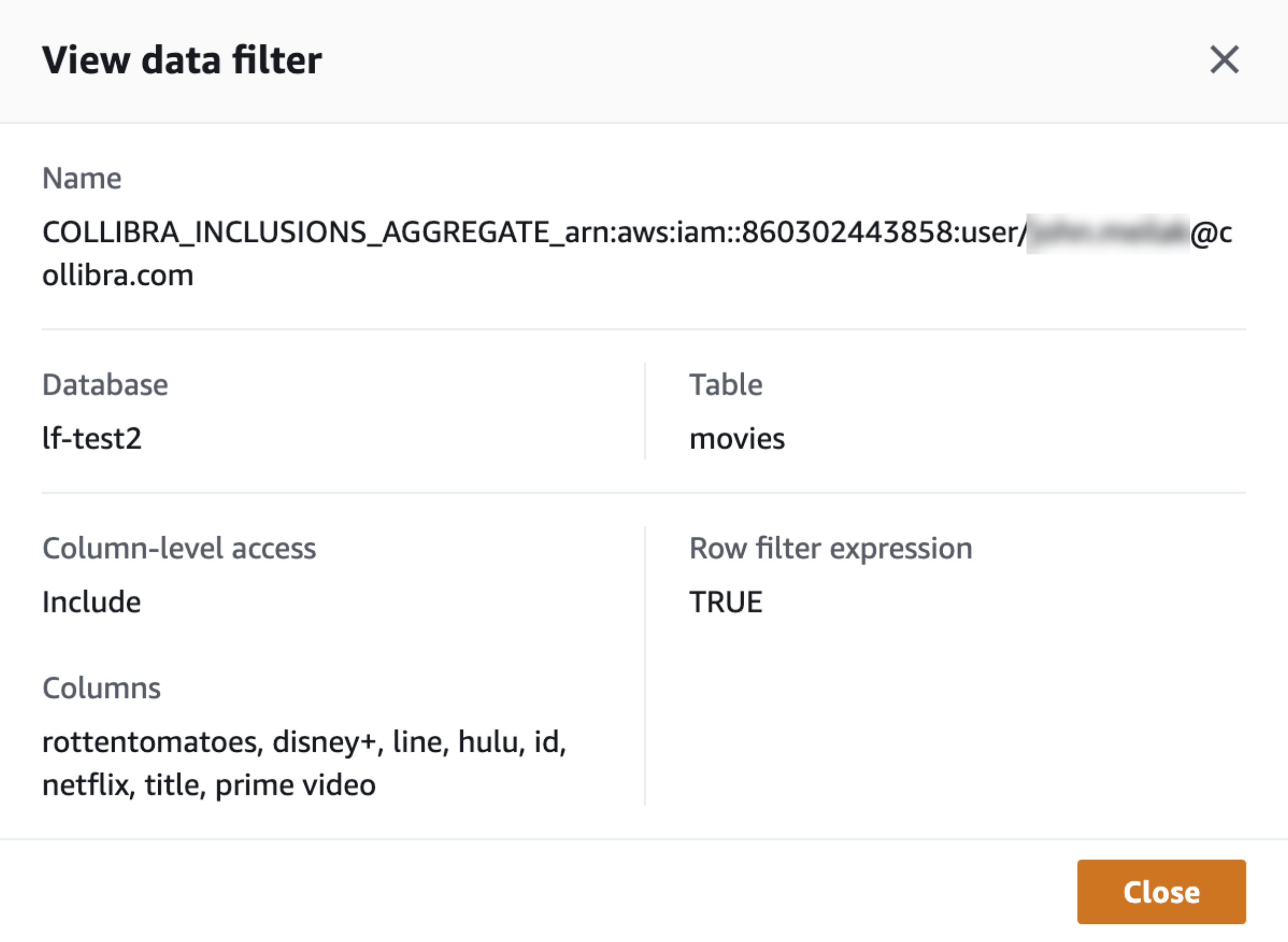Choose an option below to explore the documentation for the latest user interface (UI) or the classic UI.
This topic contains examples of how AWS Lake Formation behaves with respect to certain data protection standards and data access rules.
Suppose that a table named movies exists in AWS Lake Formation. This table contains Personally Identifiable Information (PII). The PII data category contains all the columns from movies, except for age and year.
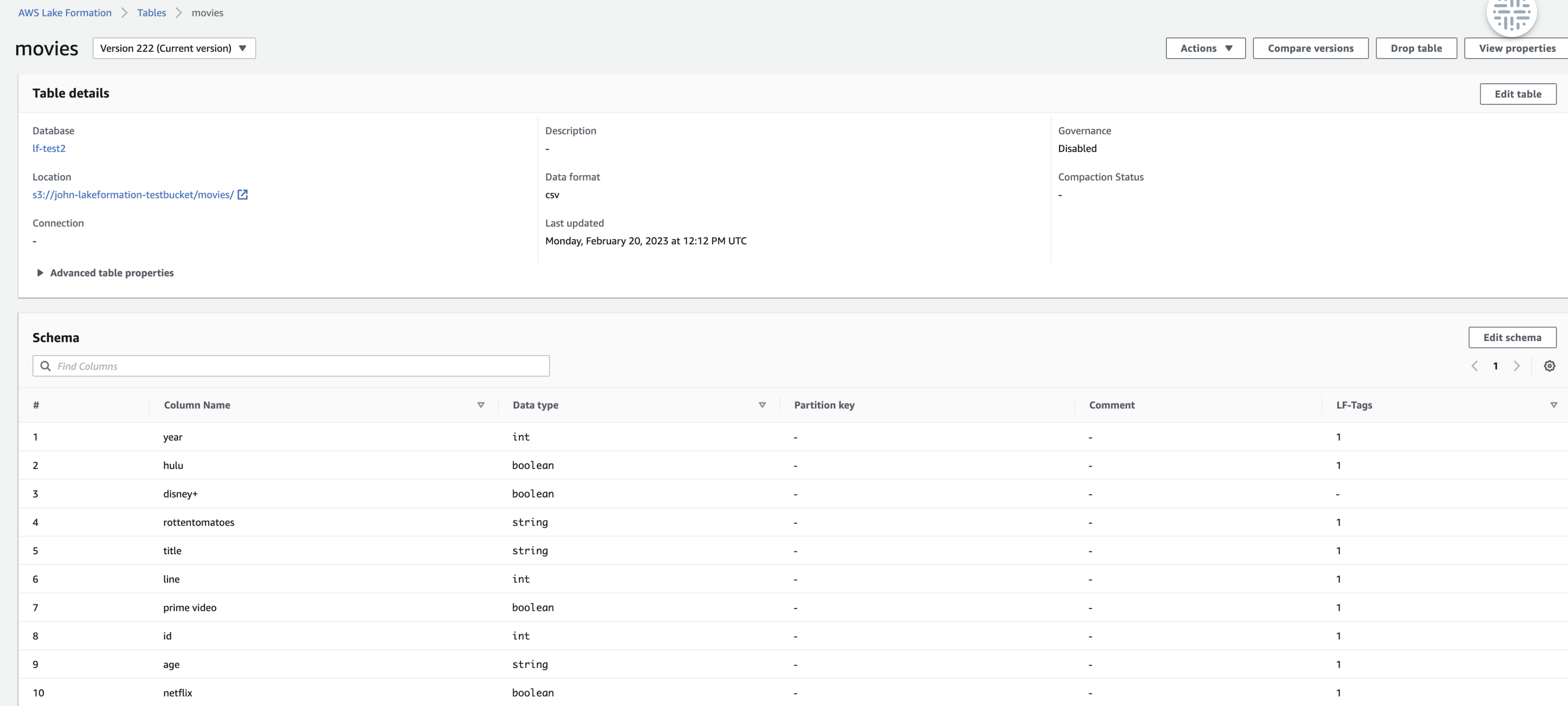
A standard that applies to the following groups has been created: Everyone, Human Resources, Marketing, and Sales. This standard requires default masking for the PII data category.

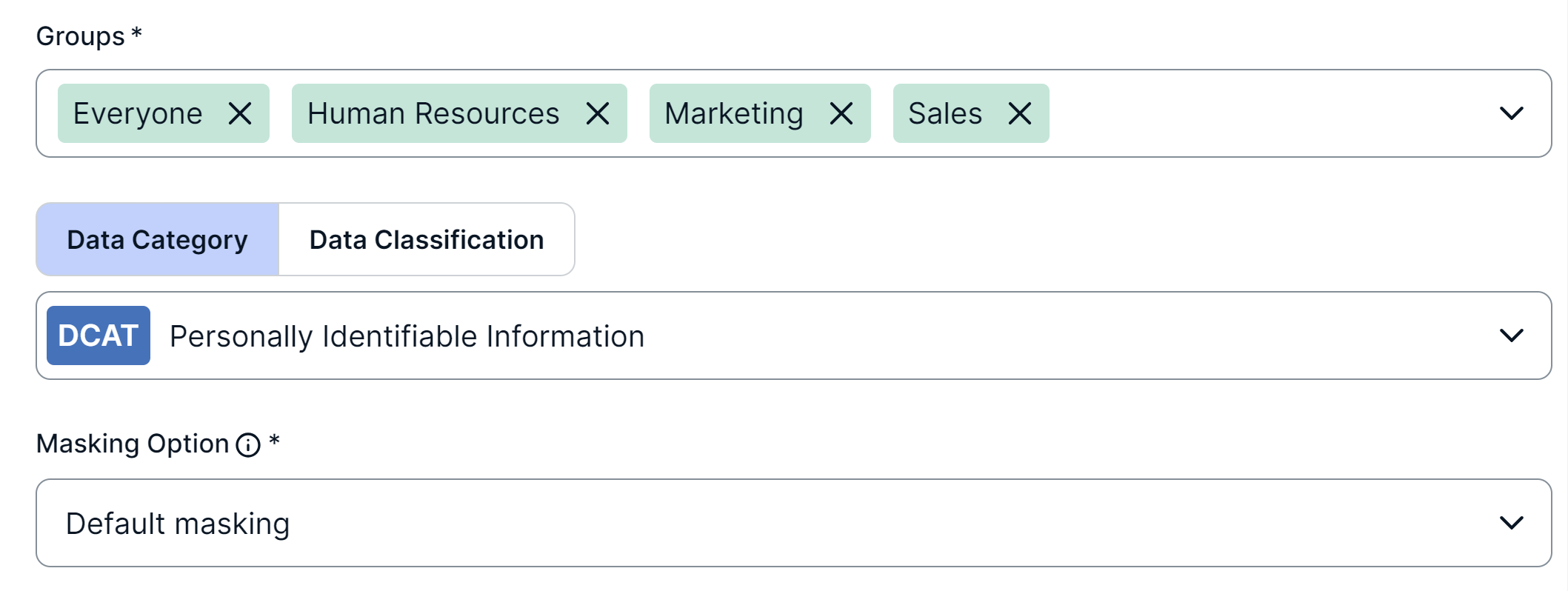
Behavior
When the standard is synchronized and active, an exclusion data filter is created in AWS Lake Formation. This exclusion data filter hides all the PII columns from the specified groups. The exclusion data filter is named COLLIBRA_EXCLUSIONS_AGGREGATE_/<arn>.

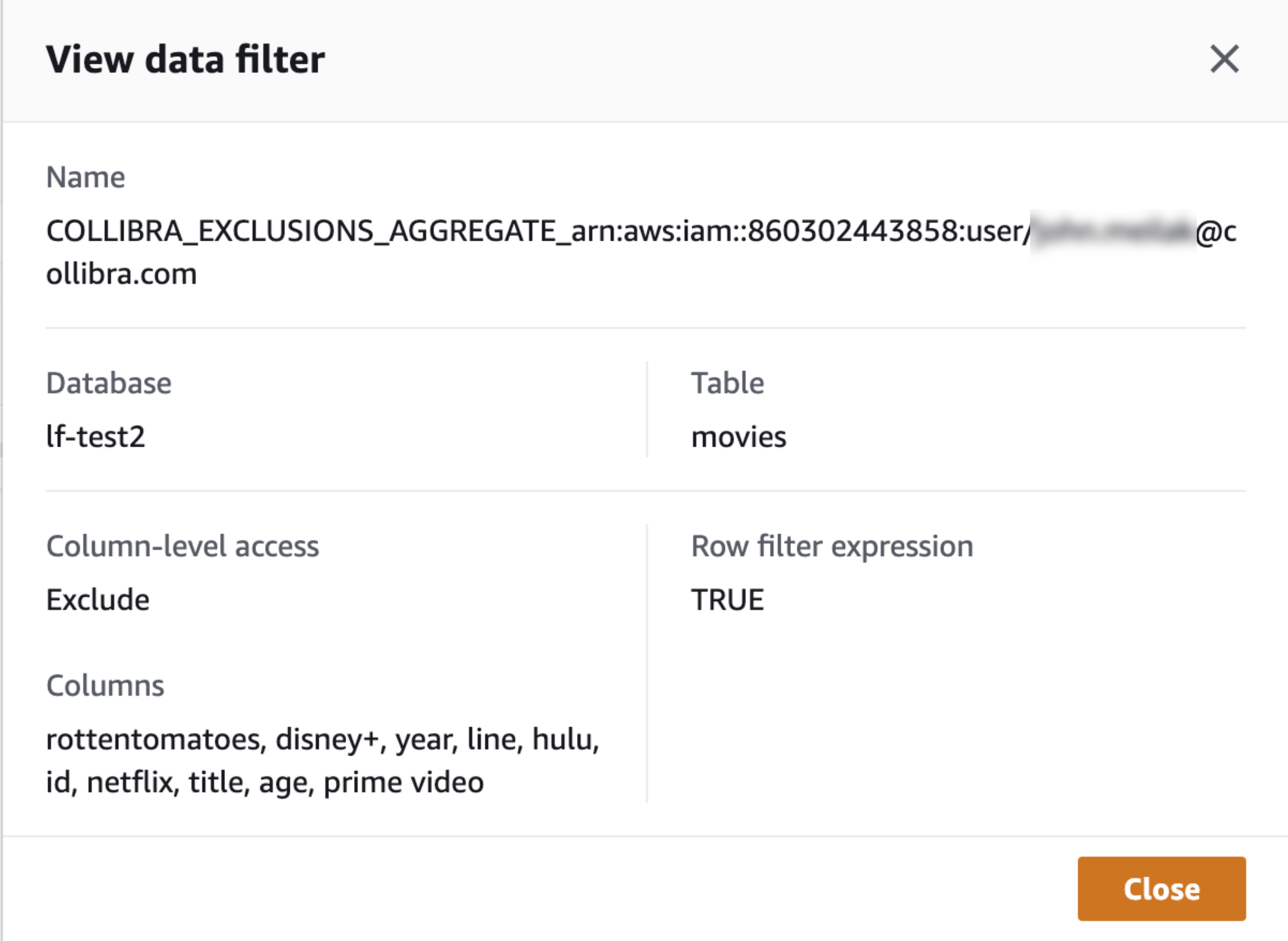

Suppose that a table named movies exists in AWS Lake Formation. This table contains Personally Identifiable Information (PII). The PII data category contains all the columns from movies, except for age and year.

A standard that applies to the following groups has been created: Everyone, Human Resources, Marketing, and Sales. This standard requires default masking for the PII data category.


However, a rule is set for the Human Resources group. This rule does not require any masking for the PII columns in movies.

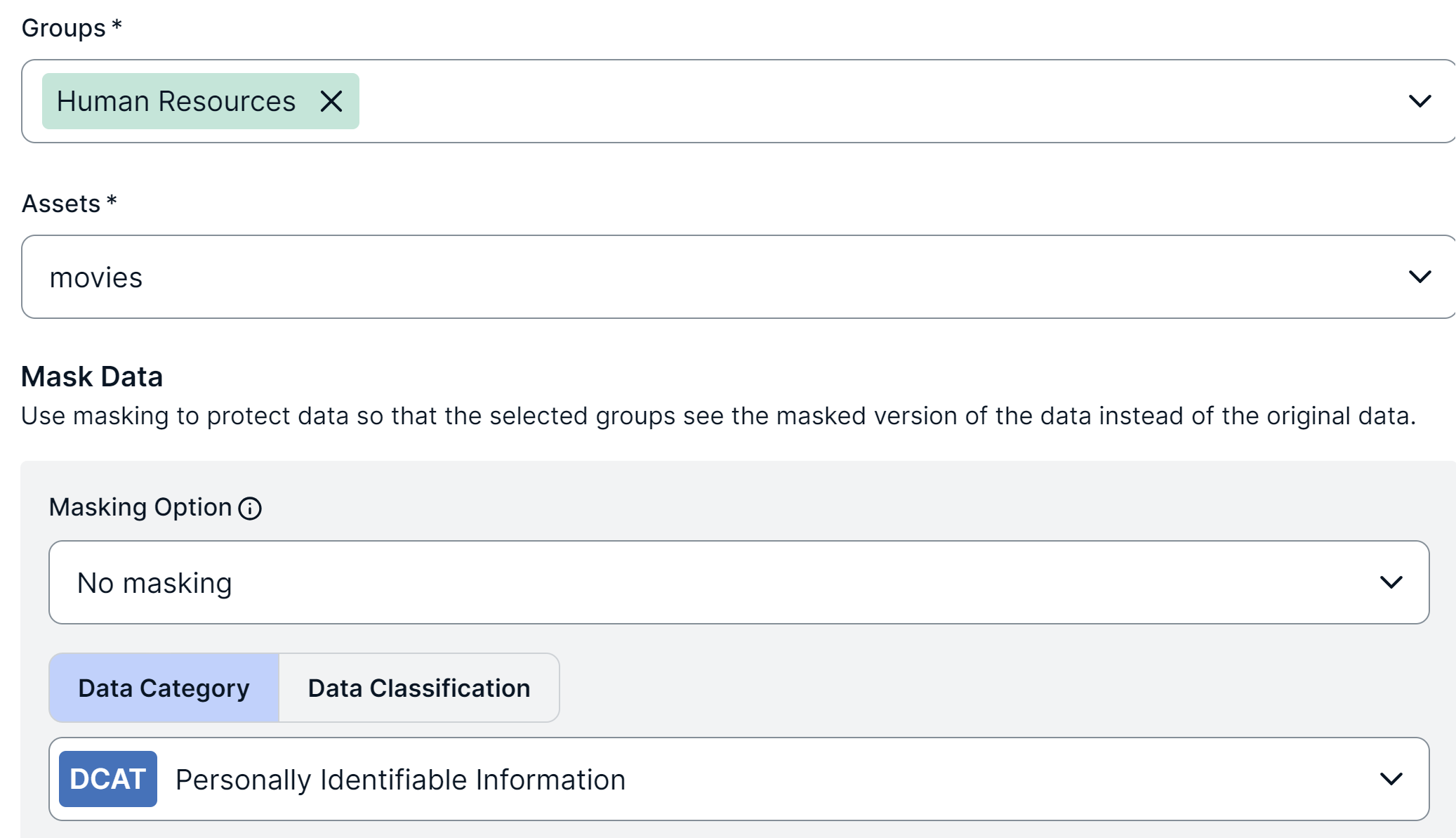
Behavior
Because the rule takes priority over the standard, when the standard and the rule are synchronized and active, an inclusion data filter resulting from the rule is created in AWS Lake Formation, instead of an exclusion data filter resulting from the standard. This inclusion data filter shows all the PII columns in the movies table to the Human Resources group. The inclusion data filter is named COLLIBRA_INCLUSIONS_AGGREGATE_/<arn>.

